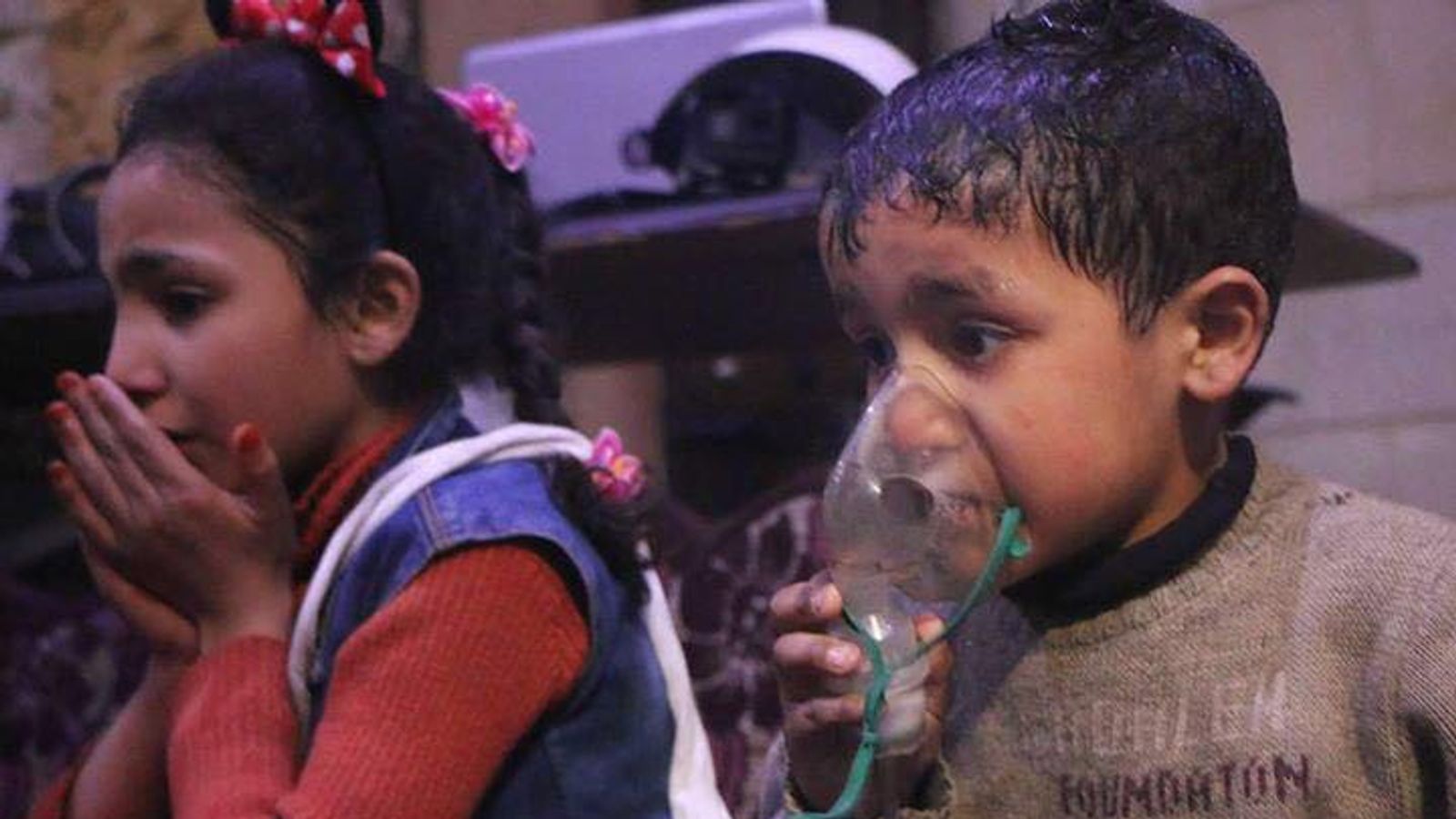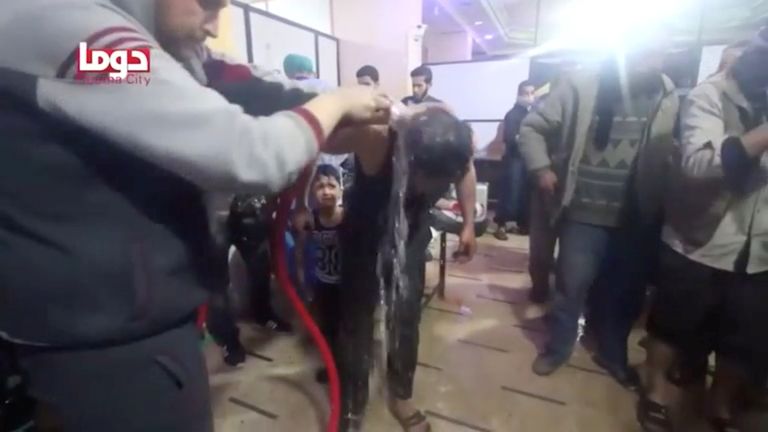A chemical strike that killed 43 people in the Syrian city of Douma in 2018 was almost certainly the work of Syria’s air force, a watchdog has found.
An investigation by the global chemical weapons watchdog has established there are “reasonable grounds to believe” Syria‘s air force dropped two cylinders containing chlorine gas in what was called “one of the worst chemical attacks in Syrian history”.
The report by the Organisation for the Prohibition of Chemical Weapons (OPCW) offered the latest confirmation that the regime of Syrian President Bashar al Assad used chemical weapons during his country’s grinding civil war.
The organisation said “reasonable grounds to believe” is the standard of proof consistently adopted by international fact-finding bodies and commissions of inquiry.
“The use of chemical weapons in Douma – and anywhere – is unacceptable and a breach of international law,” OPCW director-general Fernando Arias said.
At the time of the attack, graphic images were published showing a number of dead children who appeared to have been frothing at the mouth.
The Syrian American Medical Society also described patients foaming at the mouth, saying victims suffered corneal burns and smelled of a “chlorine-like odour”. One woman had convulsions and pinpoint pupils, the society said.
Yellow cylinders smashed through roofs
Two yellow cylinders were dropped on Douma, the OPCW report found.
The two cylinders carrying chlorine were modified and filled at the Dumayr air base and the helicopter or helicopters that dropped them were under control of the Syrian military’s elite Tiger Force, the report added.
One of the containers hit the roof of a three-storey residential building and ruptured.
On impact, the report said it “rapidly released toxic gas, chlorine, in very high concentrations, which rapidly dispersed within the building killing 43 named individuals and affecting dozens more”.
A second cylinder burst through the roof of another building into an apartment below and only partially ruptured, “mildly affecting those who first arrived at the scene”, the report added.
Syrian authorities refused the investigation team access to the sites of the chlorine attacks.
Read more from Sky News:
US forces kill senior Islamic State leader
‘Blink and suddenly ISIS will be back’
British-born ‘Jihadi Jack’ to be moved
Alternative theories rejected
Syria, which joined the OPCW in 2013 under pressure from the international community after being blamed for another deadly chemical weapon attack, does not recognise the investigation team’s authority and has repeatedly denied using chemical weapons.
The country had its OPCW voting rights suspended in 2021 as punishment for the repeated use of toxic gas, the first such sanction imposed on a member nation.
The recent investigation was set up to identify perpetrators of chemical weapon attacks in Syria, building on earlier findings by the OPCW that chlorine was used as a weapon in Douma.
The watchdog interviewed dozens of witnesses and studied the blood and urine of survivors as well as samples of soil and building materials, according to the watchdog agency.
Investigators also carefully assessed and rejected alternative theories for what happened, including Syria’s claim that the attack was staged and that bodies of people killed elsewhere in Syria were taken to Douma to look like victims of a gas attack.

